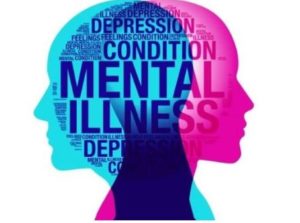
The COVID-19 pandemic has taken a toll on the mental health of people all around the world. A report in The Lancet says that the Coronavirus pandemic has exacerbated impacts that trigger mental health conditions.
The report says, “Epidemiological research suggests that long-term impacts of the pandemic on the economic and social circumstances of a population might increase the prevalence of mental health disorders.”
Mental health experts have told G Plus that mental and physical relaxation techniques can help calm our minds and body. Psychological counselor in Guwahati, Loya Agarwala said that breathing techniques, meditation, progressive muscle relaxation (PMR), visual imagery, mindfulness, autosuggestion, and even positive affirmations help in mental and physical relaxation, and release tension.
In the words of Counseling Psychologist Sanjeevani Goswami, one can inhale for 3 seconds, hold it for another 3 seconds and then exhale for 4 seconds. If a person does a set of around 22-23 such rounds of deep breathing, people will get relief from anxiety.
In the Progressive Muscle Relaxation (PMR) technique, you tense a group of muscles as you breathe in, and relax them as you breathe out. This relaxes the body and when one gets used to the practice, it can be used to relieve stress.
Mindfulness is the basic ability to be fully present, aware of where we are and what we’re doing, and not become overly reactive or overwhelmed by what is going on around us. These exercises help in controlling the mind and keeping stress responses at bay. Psychiatrist Dr Sourav Bordoloi advises people to notice and appreciate the little things around them as a mindfulness exercise. “Notice 3 things around you, like the pattern of your curtains, the blue sky, finer details of a light bulb or just sounds of birds or cars nearby,” Dr Sourav Bordoloi advises.
Counseling Psychologist Sanjeevani Goswami also told G Plus that anxiety is mostly caused because of fear of the unknown. One must focus more on short-term goals rather than constantly worrying about an ambiguous future. One must break down long-term goals and target achieving short-term goals instead.
“Small steps towards achievements on a regular basis can lead to accomplishments,” the Head of Psychology Department at Handique Girls’ College, Dr Bidita Das said.
Psychiatrists are also citing consumption of negative social media content to be a reason behind depression and anxiety during the COVID-19 times. Psychiatrist Dr HR Phukan has advised that one should engage in deep conversations with close ones or people who can help learn something new. He urges people to use social media only to stay informed and not to overload themselves with negative content. Those battling anxiety and depression should meditate, exercise, walk, practice yoga or listen to a good podcast instead.
Mental health professionals have observed that due to elongated periods of being deprived of contact with friends and close ones during the pandemic, people have been unable to share their emotions. Dr Bidita Das has advised people to talk to friends and family in order to release feel-good hormones which helps relieve stress.
For those dealing with job loss or revenue loss due to COVID-19 related issues, many new avenues have opened up when it comes to working remotely. Markets now have a digital presence, making it a space booming with opportunities.
In the ongoing third wave of the COVID-19 pandemic, many people across the world have started pursuing their hobbies. Psychiatrist Ashok Kumar has valuable advice for those suffering from pandemic-induced anxiety, “Paint, read, write or engage in any activity which calms you down and keeps the devil off your mind.”




 Driving Naari Programme launched in Chandigarh
Driving Naari Programme launched in Chandigarh






























